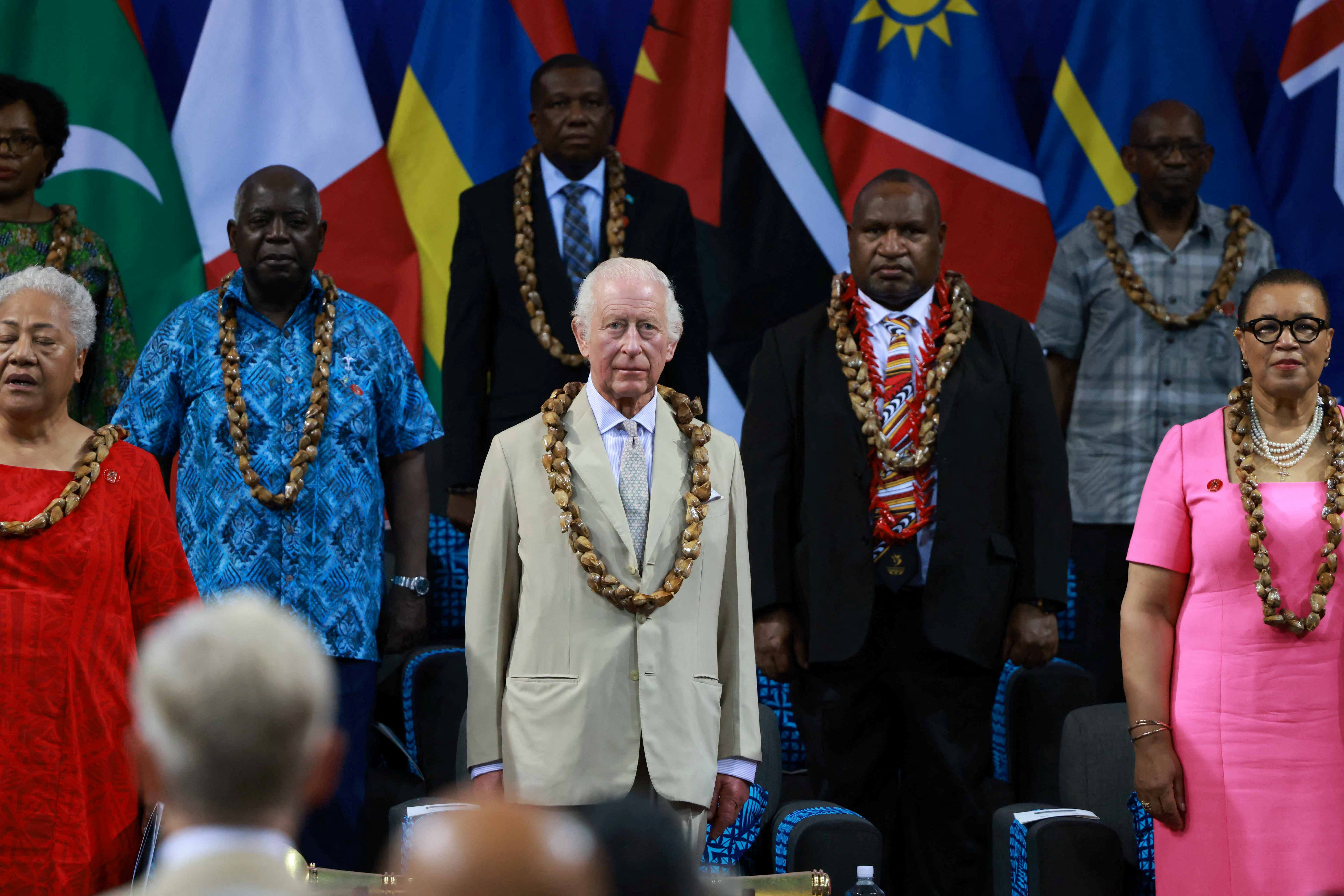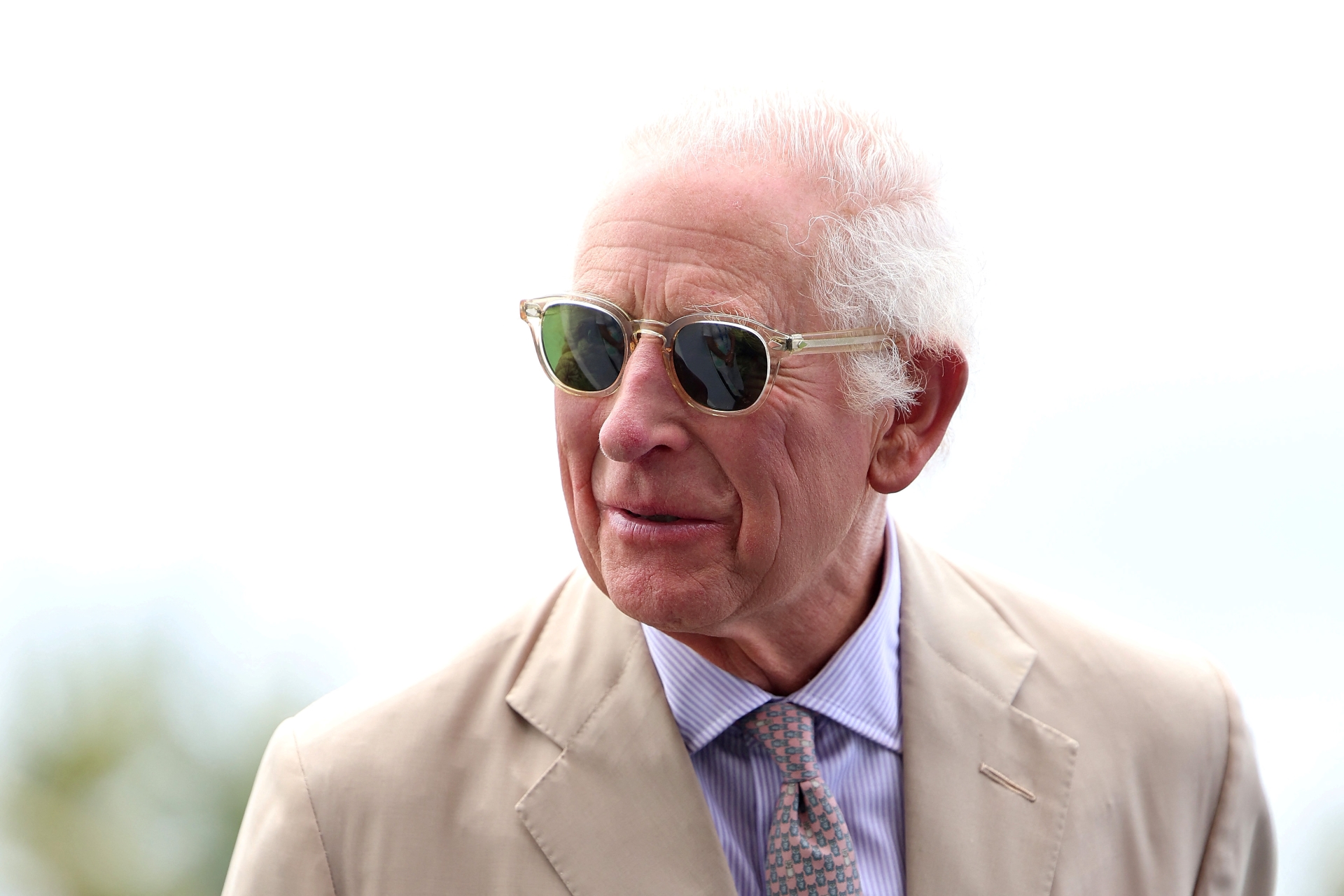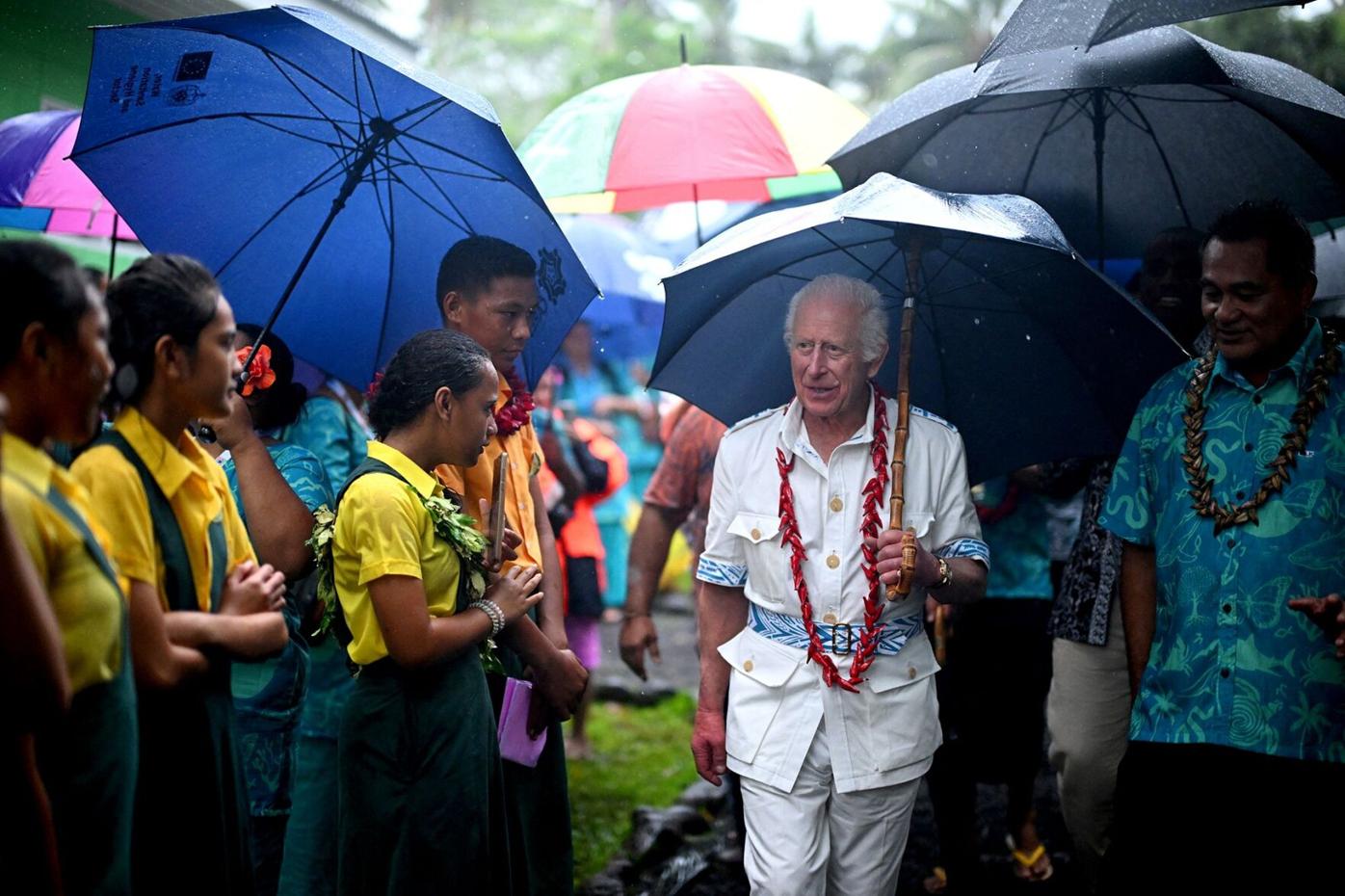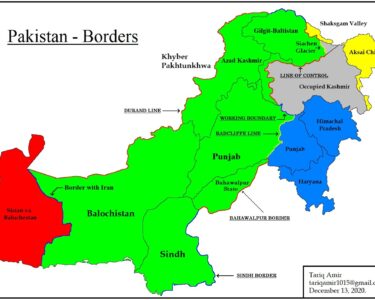Summary
- King says Commonwealth’s has ‘painful’ history
- Member countries push for slavery reparations
- Climate pledge also on the agenda
APIA, Samoa – Britain’s King Charles said on Friday that the Commonwealth should acknowledge its “painful” history, as African and Caribbean nations continue to advocate for reparations for Britain’s role in the transatlantic slave trade.
Representatives from 56 countries, most with historical ties to the British Empire, are attending the Commonwealth Heads of Government Meeting (CHOGM) that began in Samoa on Monday, with slavery and the threat of climate change emerging as major themes.
“I understand from listening to people across the Commonwealth how the most painful aspects of our past continue to resonate,” King Charles said in his speech to the summit. “It is essential, therefore, that we fully understand our history to guide us in making the right choices for the future.”
 Britain’s King Charles and Samoan Prime Minister Afioga Fiamē Naomi Mataʻafa, left, talk during the opening ceremony for the Commonwealth Heads of Government meeting in Apia, Samoa, Friday, Oct. 25, 2024. (AP Photo/Rick Rycroft/Pool)
Britain’s King Charles and Samoan Prime Minister Afioga Fiamē Naomi Mataʻafa, left, talk during the opening ceremony for the Commonwealth Heads of Government meeting in Apia, Samoa, Friday, Oct. 25, 2024. (AP Photo/Rick Rycroft/Pool)
The demand for Britain to pay reparations or make other forms of amends for its role in the transatlantic slave trade is a long-standing one, but has recently gained momentum worldwide, particularly among the Caribbean Community (CARICOM) and the African Union.
Opponents of reparations payments say countries should not be held responsible for historical wrongs, while those in favor say the legacy of slavery has led to vast and persistent racial inequality today. British Prime Minster Kier Starmer said on Monday the country would listen to nations who wanted to discuss the issue at the summit but ruled out apologizing for the country’s historic role in the trade.
The Guardian newspaper, citing a source from Starmer’s office, reported late on Thursday that the prime minister had “opened the door to non-financial reparations”, such as restructuring financial institutions and providing debt relief.
 King Charles III attends the opening ceremony of the CHOGM in Apia, Samoa, October 25, 2024. Ian Vogler/Pool via REUTERS.
King Charles III attends the opening ceremony of the CHOGM in Apia, Samoa, October 25, 2024. Ian Vogler/Pool via REUTERS.
“We don’t recognize those reports,” a Starmer’s spokeswoman said when asked about non-financial reparations.
There are different types of reparations, from financial payments and apologies to technology transfer and educational programmes. CARICOM has its own reparations plan.
‘PARADISE IN DANGER’
Bahamas Foreign Minister Frederick Mitchell told the BBC on Thursday the summit’s draft conclusion, expected to be published on Saturday, had paragraphs calling for a discussion on reparations.
“If we say we want greater equality and equity in the world, the way to do this is to examine what and how reparations might manifest, rather than to shut down the conversation,” said Jacqueline McKenzie, a lawyer at London firm Leigh Day, where her team are investigating the potential for reparations claims.
From the 15th to the 19th century, at least 12.5 million Africans were kidnapped and forcibly taken by mostly European ships and merchants and sold into slavery. Britain transported an estimated 3.2 million people. Those who survived the brutal voyages ended up toiling on plantations in inhumane conditions in the Americas, while others profited from their labor.




 King Charles III visits O Le Pupu-Pue National Park in Samoa on October 24, at the start of the Commonwealth summit.
King Charles III visits O Le Pupu-Pue National Park in Samoa on October 24, at the start of the Commonwealth summit.


